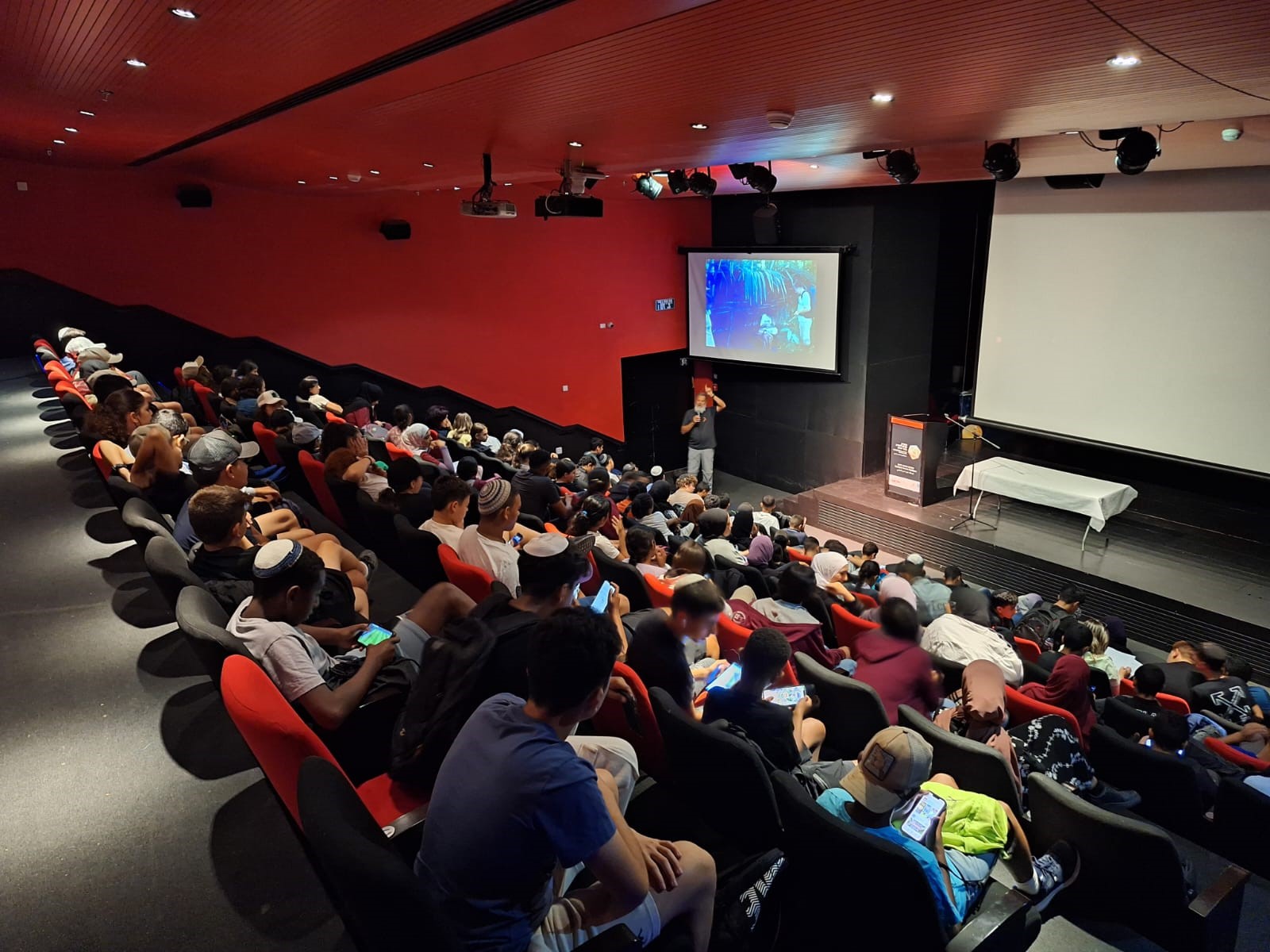Overpopulation in Israel: A self-made crisis
April 20, 2020With COVID-19 all over the news and on everyone’s mind, it’s easy to cast aside the issues that are at the root of many of modern society's problems and those that could exacerbate global crises like Coronavirus

In recent years, Israel’s continual population growth has repeatedly made headlines on the national news and has made experts worried about the future of the country. With a staggering 9.1 million people, according to the Central Bureau of Statistics, Israel is the second-densest country in the developed world, proportional to its size.
In addition, Israel has a yearly population increase rate of 2% and an average fertility rate of three children per family, which positions the country far above the OECD average, and the trend does not show any signs of slowing down. Central Bureau of Statistics (CBS) official estimates project that Israel will reach a population of between 14 to 17.6 million people by 2050.
In light of this accelerating development, one might argue that Israel is headed for a population density crisis come mid-twenty-first century.
A man, who was among the first to bring this issue to public attention is Prof. Alon Tal, the current chair of the Department of Public Policy at Tel Aviv University.
In 2015, he founded the Forum for Population, Environment and Society, or in Hebrew ZAFUF (crowded). The goal of this organization is to bring the matter of overpopulation not only to public attention but to convince decision-makers to take measures to alleviate an impending population crisis.

A crisis in the making
Alon Tal is widely respected for his environmental activism, and is renowned for being one of the first to speak out about Israel’s overpopulation crisis.
Back in 1990, Alon Tal founded the environmental advocacy group the Israel Union for Environmental Defense (IUED). By that time, Tal was already concerned about the fact that Israel’s population is growing at a rate that will inevitably become a problem in a not too distant future. In 1994, Israel was home to roughly 5.3 million people, which is about 3.8 million people less than today’s population. According to Tal, Israel is growing by 1.5 million people every decade.
“After four to five years working in the IUED, I began to feel that I was only dealing with the symptoms and not the causes,” Tal recounts.
“If you think about it systematically, you realize that the cause of all of our environmental problems, which ultimately also become social problems, is that we are becoming more and more crowded,” he explains.
In the late-nineties, Tal moved to New Zealand for one year to write his book Pollution in the Promised Land, which contained a section about population growth in Israel. “I didn’t know that much about the topic at that point, but I was already giving it a lot of thought,” Tal says. When I started talking about it openly, there was a lot of pushback,” he adds.
Society did not yet seem ready to deal with, let alone acknowledge the urgency of the problem.
In 2016, however, Tal’s latest book, The Land is Full, drew a lot of attention and had a substantial impact on the public’s perception of overpopulation in Israel. He was invited to speak on numerous TV shows about his book, and “people began to understand the issue, and became aware that we need to step up in order to change something,” he says.

“Crowded”
In Alon Tal’s own words, ZAFUF came into existence after an encounter with Professor Eyal Rotenberg from the Weizmann Institute, in Rehovot, Israel, at a conference of the Israel Society of Ecology and Environmental Sciences.
ZAFUF was founded with the aim to raise public awareness of the issues that overpopulation in Israel entails. These issues are plentiful and range from more traffic, to poorer education and health care systems, increased poverty rates, slower legal services, and many more.
Tal emphasizes that on the current trajectory, we are making it almost impossible for our children to have a reasonable quality of life. According to him, every year, Israel needs to build 60,000 housing units, which means that, in return, the country needs to give up vast areas of open spaces.
“Israel is going to double in size in the next 30 years, and it is not going to be pretty. We have to do whatever we can to preserve some quality of life in this country.”
According to Tal, a very striking example that shows just how serious the problem has become is the Corona (COVID-19) crisis.
“If we had four million people in the country, and the same amount of hospitals, which haven’t really been able to grow at the same rate as the population, the country could deal with the crisis better. No question about it,” Tal says.
Indeed, the quick response to the spread of the virus and the hefty measures imposed by the government, while case numbers were still generally low (compared to other countries), might stem from the fact that the health care system cannot accommodate too many sick people at the same time. Most hospitals are already at capacity and do not have enough room if mass numbers of people get sick all at once. Israel has 2864 ventilators at its disposal. Although in comparison, Switzerland, which has a population of 8.5 million, has to make do with less than half as many ventilators, health officials have already warned that additional equipment is needed to treat the predicted number of intensive care patients.

No government incentives in the bedroom
According to Alon Tal and ZAFUF, the public needs economic incentives that encourage people to reduce their fertility. However, he points out that this does not mean the imposition of restrictions or government control.
On the other hand, in order to incentivize people to have fewer children, other incentives have to be taken away. According to Tal, certain public policies that have been in place for 40 years, such as a very high monthly child allowance provided by the state, are the reason for Israel’s current population problem.
“The overpopulation crisis Israel is facing right now is of our own making. Public policies subsidize high fertility,” Tal stresses.
“I always get annoyed when people say to me: how can you support government interference in our bedroom? ZAFUF wants to do the exact opposite! We want to pull the government out of the bedroom because right now, the government sits in our bedroom, handing out money if we have more children,” he adds.
Tal emphasizes that all the discounts and tax incentives that families get for having more children are damaging to the overall well-being of society, and that the country needs to get rid of them. These public policies made sense when Israel was an “empty country”, but now they’ve become obsolete.
Furthermore, Tal points out that because the Ultra-Orthodox Jews have a lot of political power in Israel, it is extremely hard to push for a change regarding these policies. Ironically, the Ultra-Orthodox are one of the demographic groups that will hurt first and they already are.
“They don’t have a lot of money. Children are expensive. They don’t have money to go abroad for vacations. Their children don’t get equal opportunities and they perpetuate their own poverty.”
“The question that we need to ask ourselves is at what point quantity of life impinges on quality of life. In ecology, there is the term ‘carrying capacity,’ which refers to the maximum amount of organisms an ecosystem can support without deteriorating. We are close to reaching that point, but this is not what we want; we want an optimal capacity. A healthy and thriving society,” Tal stresses.
“You can always stuff more people on the train, but then no one is going to enjoy the ride,” he concludes.
This ZAVIT article was also published in The Jerusalem Post (print edition) on 04/05/2020.







